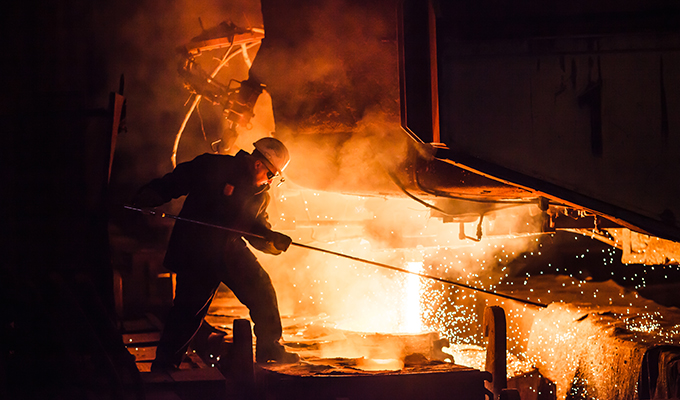As the UK steel industry is making faster progress towards decarbonization compared to its European counterparts, Liberty Steel is focusing on its low carbon steel, Greensteel, amid demand across certain markets, a senior official at the steelmaker told S&P Global Commodity Insights.
“Greensteel as a commodity has not been fully tested yet but we’re already seeing some markets start to embrace it – green buildings, high-end automobiles and so on,” Liberty Steel’s Chief Transformation Officer Jeffrey Kabel said in an interview.
“The pace of change will accelerate and it’s our role as producers to sell it and to create the market for Greensteel,” Kabel said.
The UK was making the right noises to support the industry and its pathway towards decarbonization, he said.
For its part, Liberty Steel remained committed to achieving its pledge for net zero carbon emissions across all of its operations by 2030 supported by the recycling of steel scrap while transitioning towards less emission-intensive power sources such as natural gas and hydrogen.
“Government has made some welcome policy changes over the past couple of years, and I think they increasingly see steel as a strategic industry,” said Kabel.
“There’s a high degree of political consensus – both parties are on the same page. Even so markets will remain tough and for UK steel producers to compete we will need reform in energy markets and changes in carbon border rules. I do think things are moving forward,” he said.
Some major UK producers are reportedly about to receive large funding packages from the UK government in order to sustain their business and decarbonize their steelmaking operations, which is likely to include the installation of electric arc furnaces, or EAFs, using steel scrap.
One probable outcome of the decarbonization of the UK steel industry was increased demand for high-quality steel scrap, of which the UK is a large-scale exporter.
Kabel said there was still a reluctance by the government to halt steel scrap exports, despite the probability of increased demand from steelmakers. He noted, however that there were no issues concerning scrap availability in the UK at this point of time.
“The UK generates a lot of scraps and that can be a huge asset for decarbonizing its steel industry.,” he said.
“That’s the beauty of our Rotherham plant – logistically it’s in the right place to get scrap to. If the government can do more to facilitate the domestic use of scrap, then that will help speed the transition to EAFs.”
Specialty steel
Despite a weak economic backdrop, Kabel said Liberty continued to see good demand across specialty markets, such as aerospace, energy infrastructure and defense.
“We’re focusing on specialty steel products as those markets are very strong,” he said, adding that aerospace was coming back way faster than anyone thought.
“Key customers really value our specialist alloys and components and that’s underpinning our plan this year at Stocksbridge. Plate demand is strong too,” Kabel said.
Meanwhile, Kabel pointed to a challenging period for the business in recent months with surging inflation and heightened volatility across global commodity and shipping markets weighing on profitability within the steel industry.
“Since the Ukraine war, there’s a greater focus on domestic industrial policy and the baseload capacity to produce in-country,” he said.
— Euan Sadden






